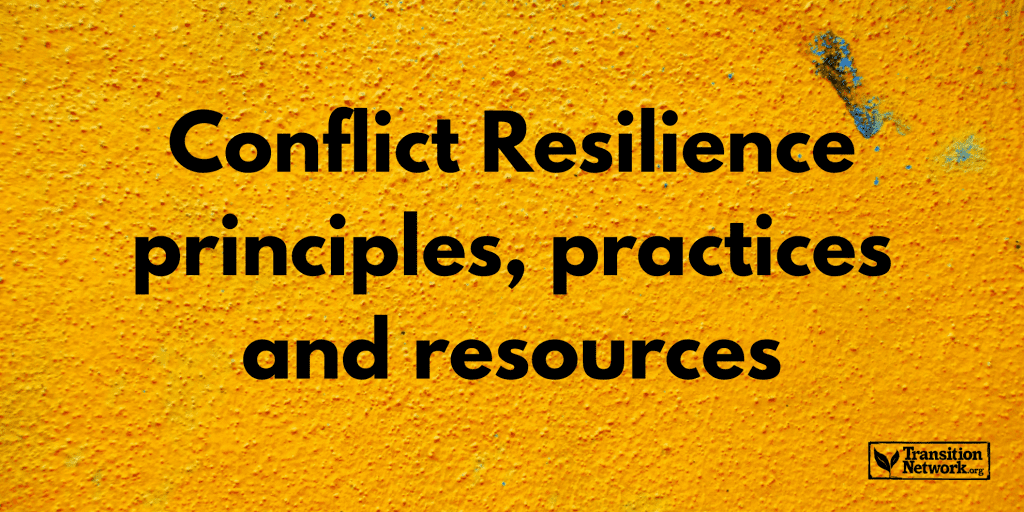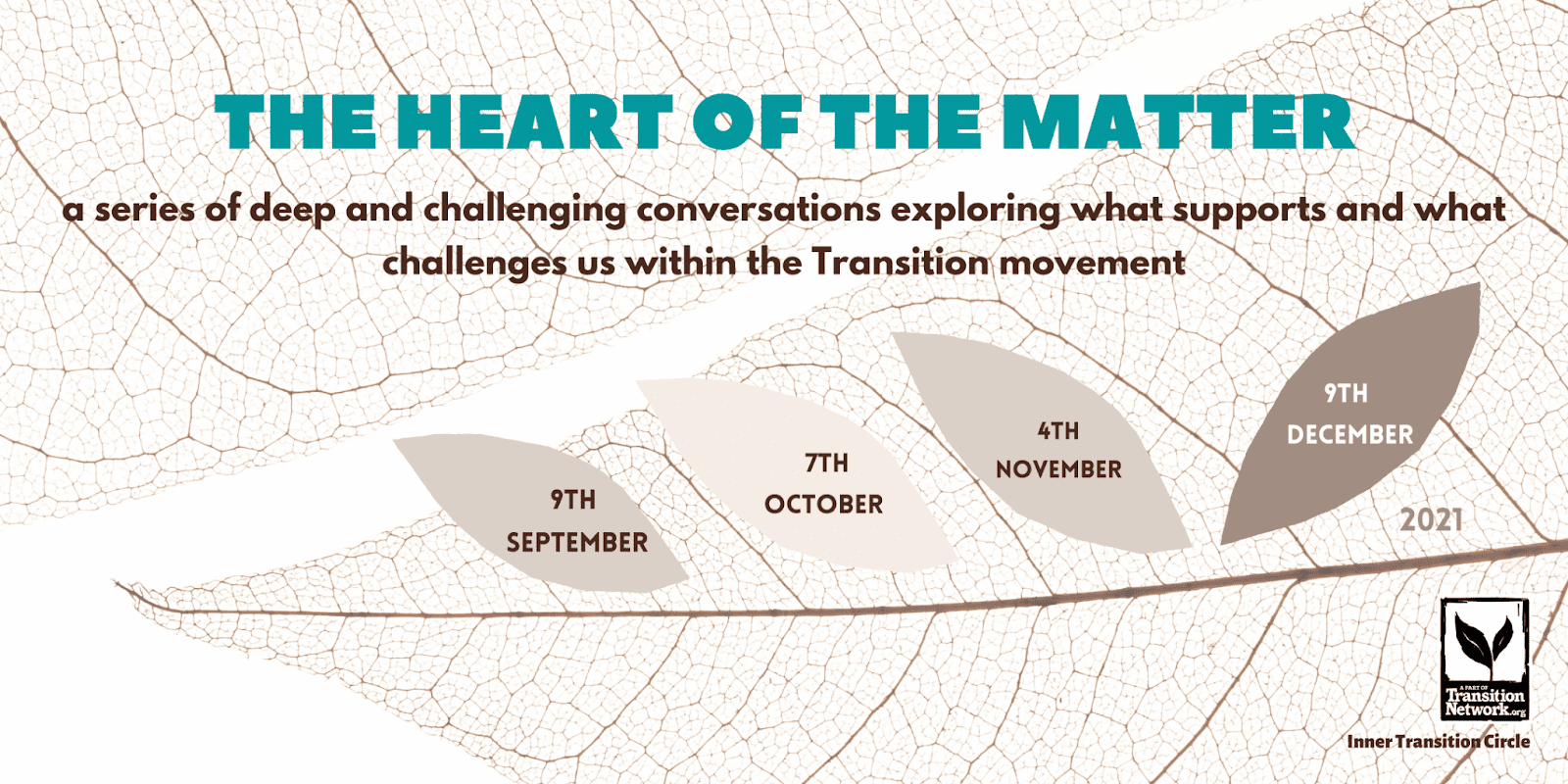Conflict Resilience – Principles, Practices & Resources
By Guest Author 12th August 2021
We’re excited to share with you our new set of Conflict Resilience Resources full of information about conflict transformation topics and processes, plus some practical ways to apply them in your own groups.
Conflict and misunderstandings are common in groups working together for shared aims. Having a common purpose is a great way to bring people together and build initial energy, however differences in background, sensitivities, communication styles, desired outcomes, levels of comfort in group settings, unconscious biases or privilege, can all lead to tensions and conflicts in a group.
In recent times polarisation, extremism, blaming and shaming seem to be increasing across many aspects of modern culture, whether politics, organisations, news or social media. Transition Network (TN), as a support organisation to the wider movement, is exploring how to bring people together to work collaboratively toward a better future, without falling into these patterns of separating from and harming each other.
Many groups within Transition struggle with conflict, often to the point of failing to achieve key aims, or even breaking down entirely. After listening to feedback from the movement, TN and the international Hubs have heard that additional support regarding conflict transformation would be welcomed.
TN serves the international movement of self-organising Transition groups and Hubs, with part of our Purpose being to support communities to ‘collaborate across difference’ and ‘nurture healthy group cultures’. Developing tools and resources which support this, and helping to build peer support and movement capacity, are important aspects of the role TN plays.
The staff and trustee team have also experienced conflict, tensions and misunderstandings over the years, and have felt the impacts of this on relationships and work. This led us to explore with curiosity the topics of conflict resilience and conflict transformation. We’ve learned that when conflicts are approached constructively they can improve creativity and enhance relationships. We can then deliver our work in the world better and with more enjoyment.
This interest in conflict resilience across the movement led to the creation of the Conflict Transformation group, now held within the Inner Transition Circle, who delivered the Coming Down to Earth summit last year and are continuing to develop conflict transformation support systems for the wider movement.
The TN team has embarked on a conflict resilience learning journey. So far engaging in six focused sessions exploring different approaches to, and developing capacities for, navigating conflict. Many of the approaches to collaborative culture, which TN have been developing over the last few years, have also helped create foundations that support conflict resilience. We provide more details of the six sessions, some tools we explored, and TN organisational practices which support conflict resilience, in this resource. Our journey is ongoing and we will continue to adapt and emerge the practices which support us to be conflict resilient.
The set of Conflict Resilience Resources offered here provide more information about conflict transformation topics and processes, plus some practical ways to apply them in your own groups. They are offered as a complement to the emerging work of the Conflict Transformation group. We hope you find them helpful.
We’d also like to share with you this invitation from the Conflict Transformation group who will be holding a series of deep and challenging conversations to explore what supports us and what’s challenging within our Transition movement, so we can learn from and support one another.
We will meet using a ‘council circle’ process to share experiences from our local and national groups. These are simple processes where we share time equally between us, with each person invited to speak and listen to others from the heart.
Time: 3-5pm UTC. PLEASE REMEMBER there will be time changes in some countries over the course of the meetings..
Dates and themes:
– 9th September: Resourcing ourselves: what is supporting our personal, group and cultural transformation in our lives and communities?
– 7th October: Finding the sore spots: What is blocking or challenging our personal, group and cultural transformation in our lives and communities?
– 4th November – to emerge from the previous conversations
– 9th December – to emerge from the previous conversations
Language: Because we don’t have funds for translation these sessions will be in English. Very big apologies for this! We would like to offer to share thinking and resources for people who’d like to hold similar circles in other languages – please get in touch if this is you.
Inspiration: these spaces have been inspired by 2 of the 9 ‘Characteristics of the Transition Movement’ report which are:
- Connect and care for each other – building social cohesion and resilience through practicing and celebrating creativity, mutual support, fun and friendship, bridging divides and decreasing polarisation to create caring and equitable communities and cultures;
- Support inner transformations – growing our individual and collective psychological resilience and wellbeing, supporting thriving groups, relationships and conflict transformation, and exploring how our mindsets, attitudes, emotions and worldviews can contribute to or block social change.

